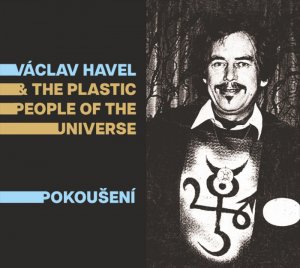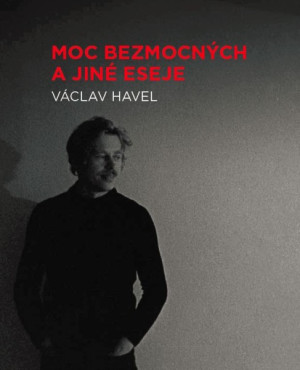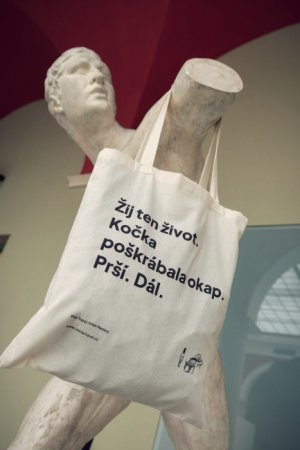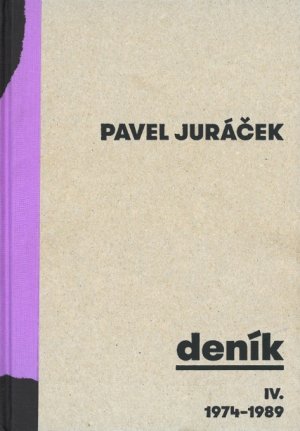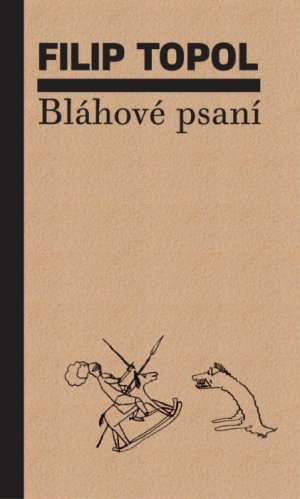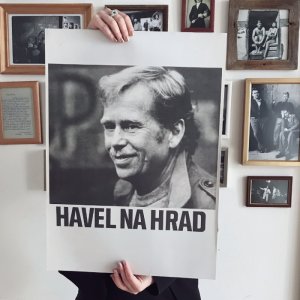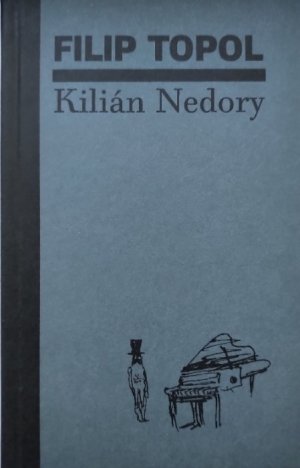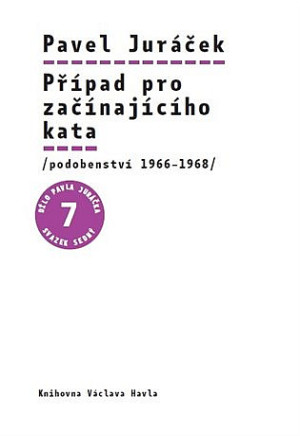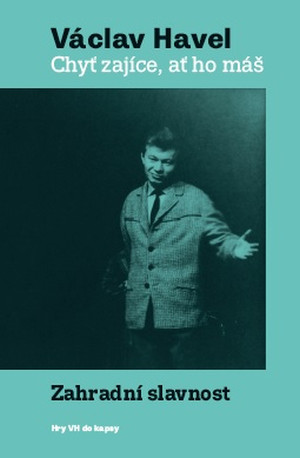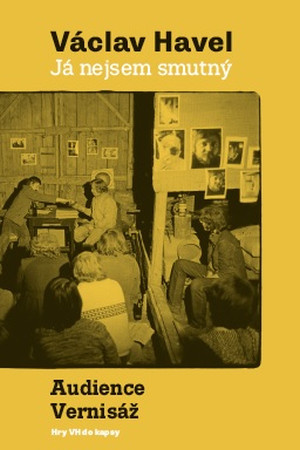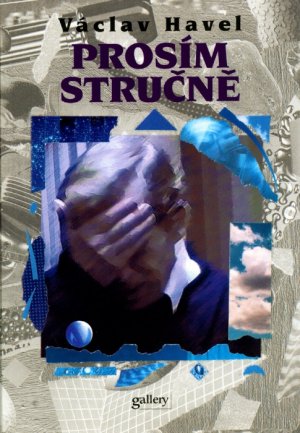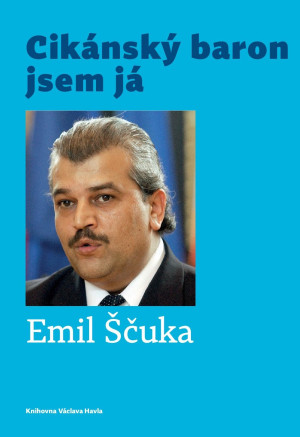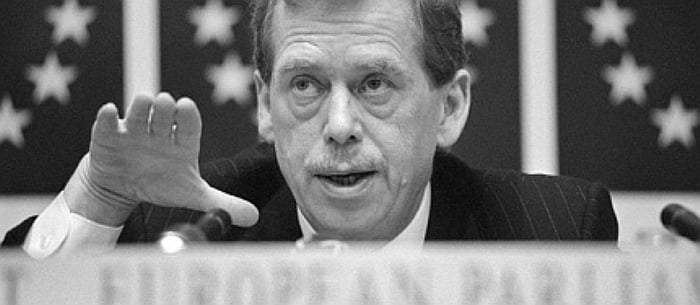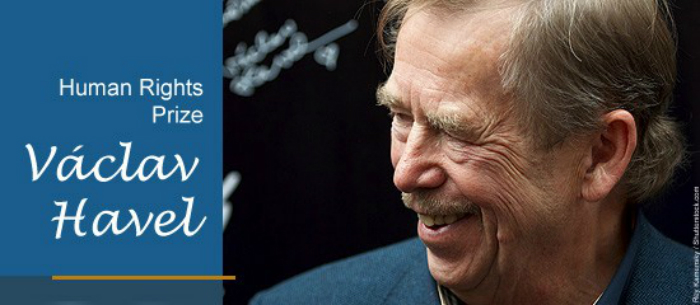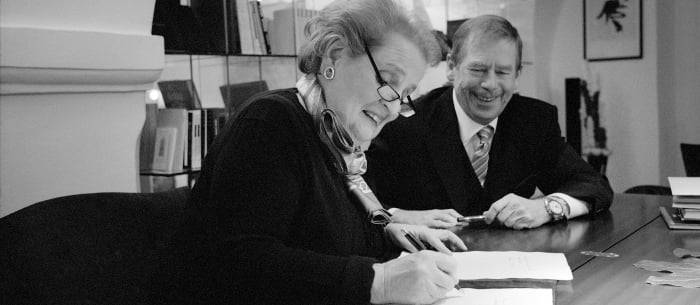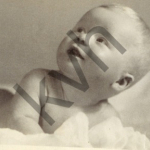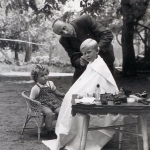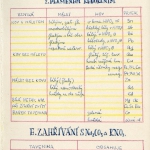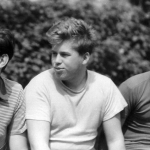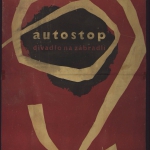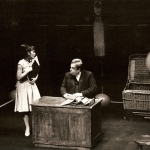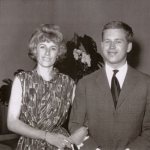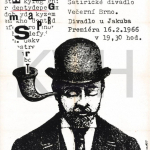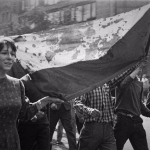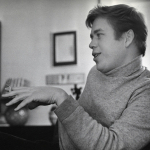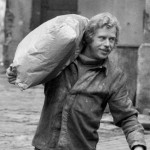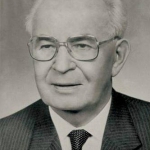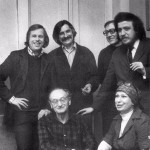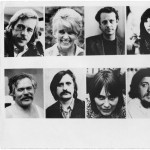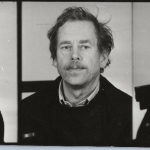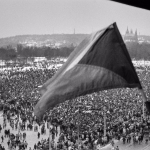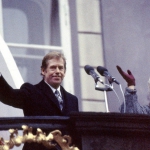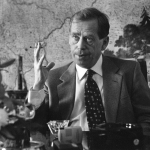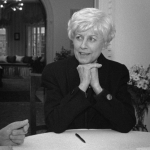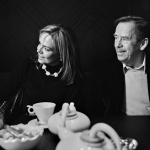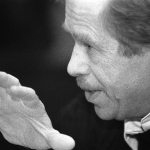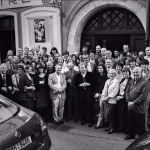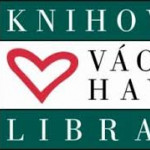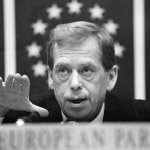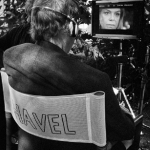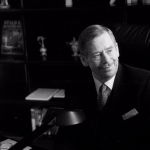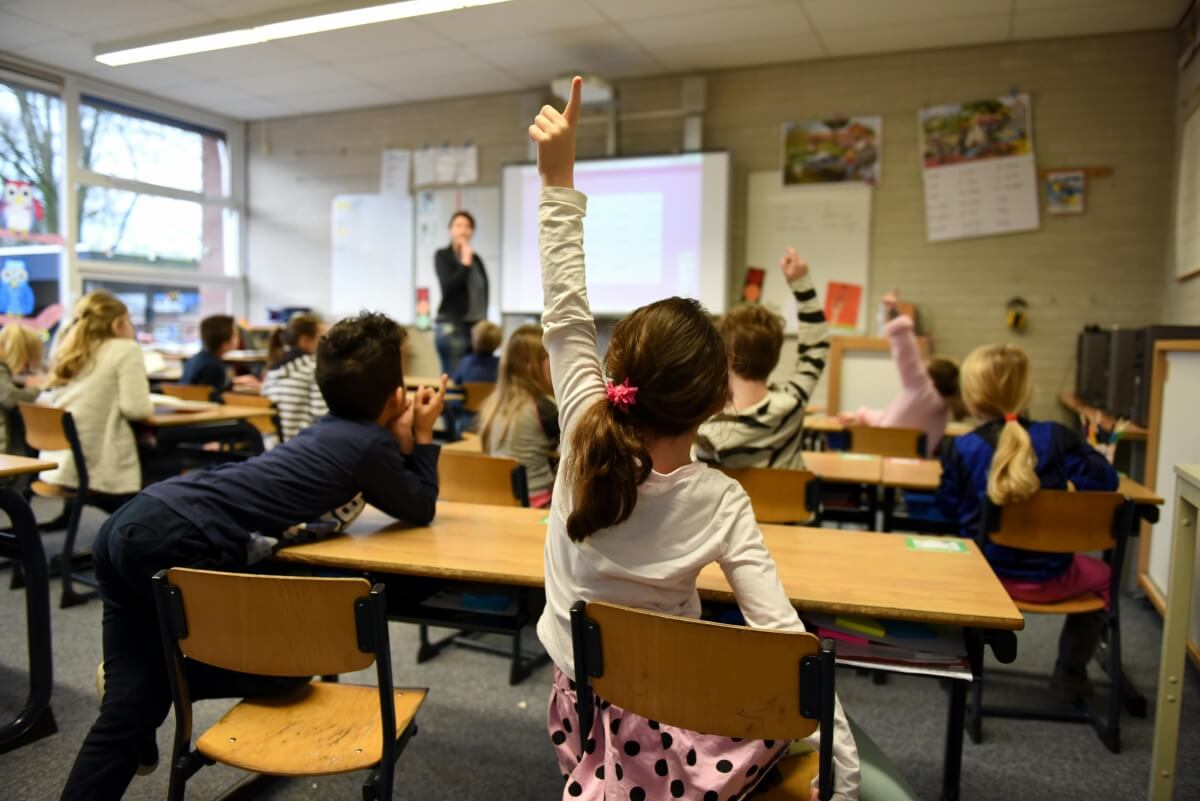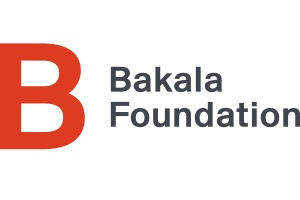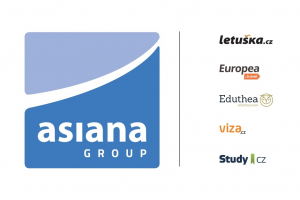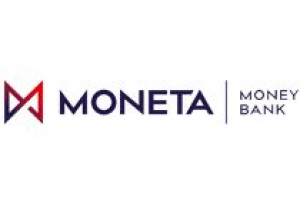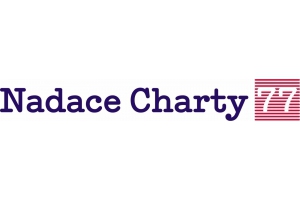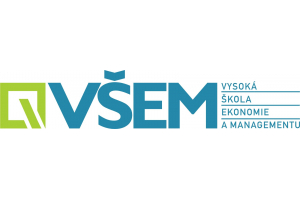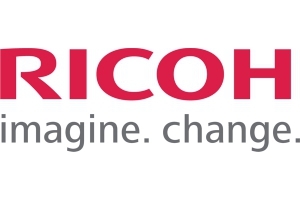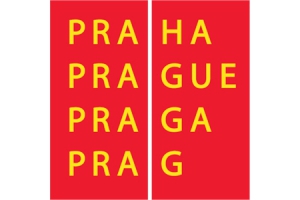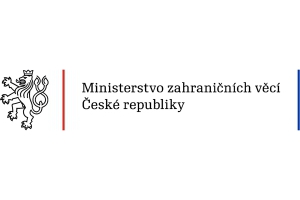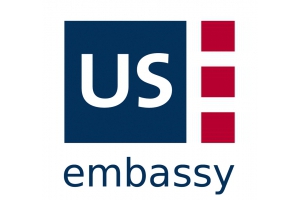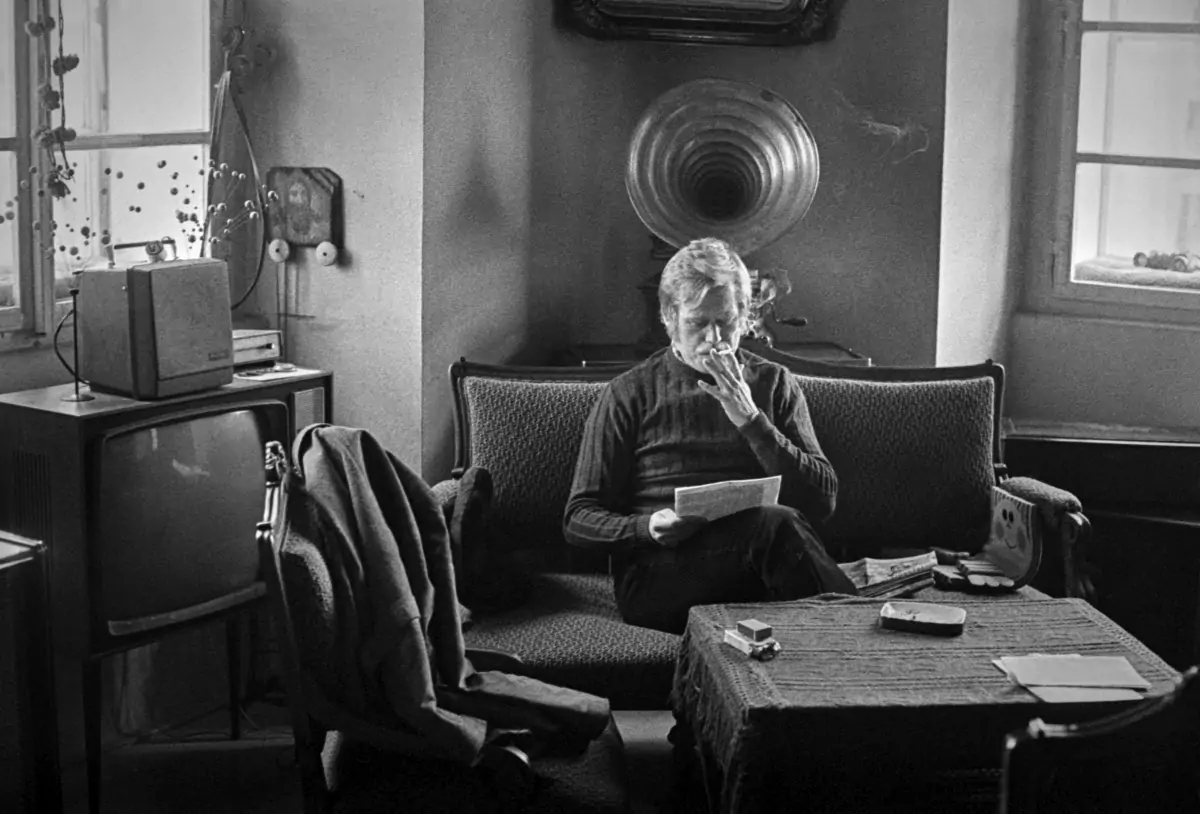
Club / News / Program
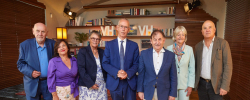
Three candidates shortlisted for the 2023 Václav Havel Prize 05/09/23
The selection panel of the Václav Havel Human Rights Prize, which rewards outstanding civil society action in defence of human rights in Europe and beyond, has today announced the shortlist for the 2023 Award. Meeting in Prague today, the panel – made up of independent figures from the world of human rights and chaired by the President of the Parliamentary Assembly of the Council of Europe (PACE) Tiny Kox – decided to shortlist the following three nominees, in alphabetical order: More
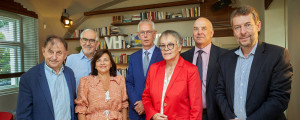
Three candidates shortlisted for the 2022 Václav Havel Human Rights Prize 06/09/22
The discussion among the seven-member jury helmed by the president of the Parliamentary Assembly of the Council of Europe centred on the importance of the issue of human rights during this tense period. The finalists include Vladimir Kara-Murza, a political prisoner and leading Russian democracy campaigner; Ukraine’s 5 AM Coalition, which gathers evidence of human rights abuses stemming from Russia’s invasion of the country; and Hungary’s Rainbow Coalition defending LGBTQIA+ rights. “This year’s selection reflects the central role that human rights play in the current European crisis,” says Michael Žantovský, jury member and executive director of the Václav Havel Library, which bestows the prize in cooperation with the Parliamentary Assembly of the Council of Europe and Nadace Charty 77.
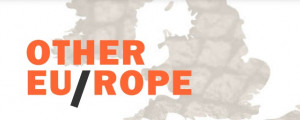
The Other Europe 27/04/22
Dear Friends, After three years we have completed the international project The Other Europe, during which, in cooperation with partner institutions, we have processed and made public recordings of interviews shot in 1987 and 1988 behind the Iron Curtain, and in exile, with important representatives of the opposition and the arts, as well as random citizens. Over those three years we have prepared video, audio and text of 106 interviews in speakers’ native languages and English translation. Despite public health restrictions in the Covid period, we have jointly prepared 16 international conferences and public presentations in six Central and Eastern European states. More
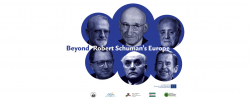
From Schuman to Havel – what next? 16/02/22
The Václav Havel Library is a proud partner of the project Beyond Robert Schuman’s Europe More
Program for March 2014<>
entry-free
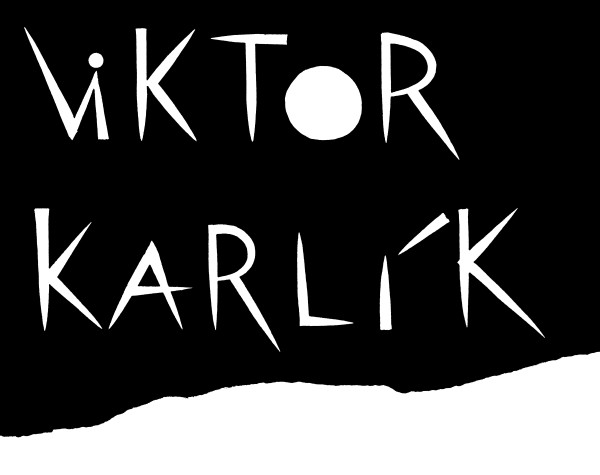
Viktor Karlík: Signs and other work
- Where: Montmartre Gallery
- When: February 11, 2014, 19:00 – March 9, 2014, 12:00
Opening of an exhibition of art by Viktor Karlík.
The music group Ženy will perform.
The exhibition runs until 9.3.2014.
Viktor Karlík (born 1962, Prague) is a painter and graphic artist who also creates sculptures and objects. The roots of his art stretch back to the 1980s underground scene. In 1981 he graduated from a Prague secondary school specialising in graphic art. He was later employed at the depositary of the National Gallery in Prague’s collection of oriental art, including as a restorer. In 1985 he co-founded the samizdat magazine Jednou nohou (One Leg, later Revolver Revue), where he serves to this day as a graphic artist and editor. As well as free art and editorial work, he also devotes himself to book graphics. His most recent substantial retrospective, entitled Underground Work, took place at the West Bohemian Gallery in Pilsen in 2012.
The exhibition Signs and Other Work takes in serigraphy, linocut and a sculpture created by Viktor Karlík in the last eight years and frequently dedicated to literary figures who have been a source of inspiration to the artist; these include a portrait of a Libeň graphic artist and visionary (Tribute to Vladimír Boudník, 2009), quotations from the writings of Céline, Gombrowicz and Musil and a statement by Marcel Duchamp.
Though it could seem that Karlík’s current graphics have nothing in common with his early work, their backgrounds share a similar basis. As regards form, we can find in his serigraphy prototypes in expressionist woodcuts inspired by the medieval tradition, to which the artist has a close attachment. An archaic stroke, elementarisation of shape and the joke stemming from the intersection of textual and pictorial content are elements that have for a long time been appearing in his bronze sculptures, reliefs and objects and, in some cases, paintings.
The artist’s activities could be compared to a journey in cycles and between them, when in his work he constantly returns to, builds on and combines certain subjects. So, for instance, the motif of a dustbin, from which in 1990 he created a gold-coloured Pop Art object, appears as if accidentally on the body of the crazy poet in a piece entitled Magor ve městě (Magor in the City) (2011). Sprej (Spray) (2009) has a similar form, with the graphic work supplemented by a diary-style record connected with the Prague district of Smíchov; a personal testimony (in this case, thanks to a connection to the place the author has lived since birth) is linked to one of objective character (the object-spray was originally captured using a documentary approach).
The artist’s choice of figures to portray and quote can be regarded in the same way. Thanks to the artist’s systematic creative and journalistic work, many of them have not been long confined to the periphery but are written indelibly into Czech cultural history. As if Viktor Karlík had chiselled the Signs into stone. And the number of tombstones is increasing inexorably.
Marianna Placáková
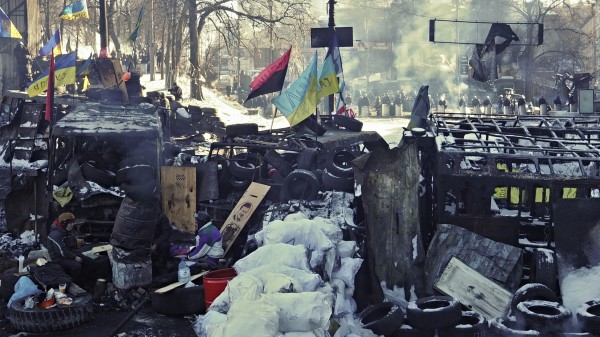
Eugen Kukla: Testimony from the streets of Kiev
- Where: Vaclav Havel Library, Řetězová 7, Prague
- When: February 28, 2014, 18:00 – April 6, 2014, 12:00
The exhibition of documentary photographs by Eugen Kukla.

Debate with Respekt
- Where: Montmartre Gallery
- When: March 3, 2014, 19:00 – 21:00
Debate with Respekt editor Tomáš Sacher on the subject The Czech Dream: Political Stability. How Long Will the New Government Last? And How United Are the Czech Left and the Czech Right?
Guests:
Helena Langšádlová, deputy chairwoman of TOP 09 and of the Chamber of Deputies European Affairs Committee, and Jaroslav Zavadil, leader of the Social Democrats in Prague and chairman of the Chamber of Deputies Social Policy Committee
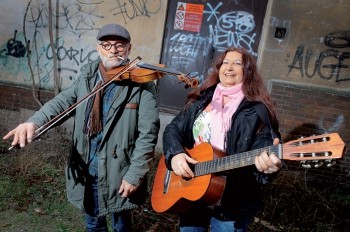
Magor's night singing
- Where: Montmartre Gallery
- When: March 4, 2014, 19:00 – 21:00
Oldřich Kaiser will read from a new posthumous collection of poems by Ivan M. Jirous entitled Magorův noční zpěv (Magor’s Night Singing) and will sing and perform with Dáša Vokatá.
The book Magor’s Night Singing is published by Maťa.
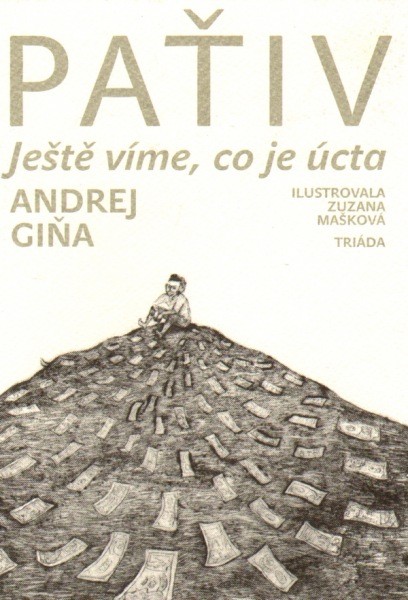
Andrej Giňa: Paťiv. We still know what respect is
- Where: Montmartre Gallery
- When: March 5, 2014, 19:00 – 21:00
Presentation of a collection of work by a leading contemporary Romany author. The evening will be hosted by editors Karolína Ryvolová and Helena Sadílková, who will also lead a discussion with the writer.
The group Le čhavendar from Rokycany will perform.
There will be a tasting of the speciality goja.
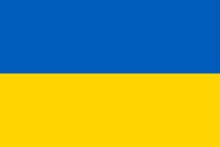
Jan Macháček' debate: Develepments in Ukraine and Czech foreign policy in relation to Ukraine
- Where: Montmartre Gallery
- When: March 6, 2014, 18:00 – 20:00
Recent developments in Ukraine and the position of Czech foreign policy will be discussed at the Václav Havel Library by Jan Macháček and his guests. Among those invited are Libor Dvořák, Ondřej Soukup, Alexej Sevruk, Kateřina Šafaříková, Jiří Schneider, Lenka Víchová.
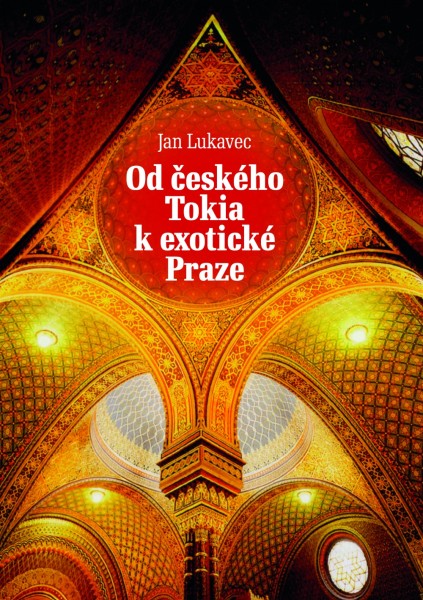
Jan Lukavec: From Czech Tokyo to exotic Prague
- Where: Montmartre Gallery
- When: March 7, 2014, 19:00 – 21:00
Columnist and cultural studies expert Jan Lukavec will present his new book Od českého Tokia k exotické Praze (From Czech Tokyo to Exotic Prague) about Czechs’ travels in search of the exotic and the incursion of the exotic into Bohemia.
Historian František Šístek will be guest.
And dancer Anja Řezníčková will perform.
How did our predecessors react then they saw belly dancing, whirling dervishes or bonsai trees for the first time? How have Czech fears of Islam or the “yellow peril” changed? Who were the first genuine Indians or Blacks to live in Bohemia? Is Prague a city of devout ladies or of “acquiescent and unfettered hot-blooded women”? When will Czech-Vietnamese writers appear in school textbooks? And will we ever have a president of Romany or Vietnamese origin?
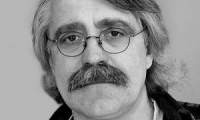
Jaroslav Formánek: President Zeman's secret: The return of the sparrows
- Where: Montmartre Gallery
- When: March 10, 2014, 19:00 – 21:00
A complete and comprehensive report on events at that time and other related issues and phenomena of Czech society in 2013 and beyond is contained in the novella Návrat vrabců (Return of the Sparrows) from Jaroslav Formánek’s forthcoming short story collection Hrad (Castle).
Musician Vlastimil Třešňák will be guest.
“A year after Mr. Miloš Zeman became president of the Czech Republic, it has not yet been credibly established what happened at Prague Castle’s Coronation Chamber on the day when the president assisted in the removal of the coronation insignia of Czech kings…”
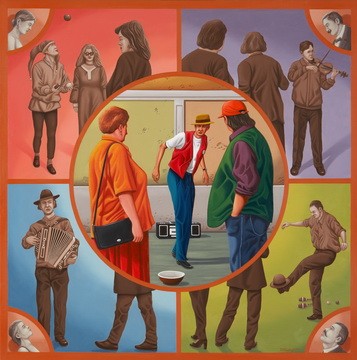
Jan Šafránek: Life around us
- Where: Montmartre Gallery
- When: March 11, 2014, 19:00 – April 6, 2014, 21:00
Opening of an exhibition of work by Jan Šafránek. Richard Drury will provide an introduction.
LIFE AROUND US
11. 3. 2014 – 6. 4. 2014
JAN ŠAFRÁNEK
Jan Šafránek (born 1948, Hradec Králové) is a visual artist with an instantly recognisable style who is known to the Czech public for his figurative paintings in particular. Originally self-taught, he began painting advertising panels for a film company in Hradec Králové. In 1974 he moved to Prague where he moved in underground circles and among the members of the Crusaders’ School of Pure Humour Without Jokes. After signing Charter 77, he was forced under pressure from the secret police to emigrate to Vienna, where he studied painting and drawing under Professor Carl Unger at the Academy of Fine Arts. A few years later he settled in Australia’s Sydney. He undertook trips to the USA, Mexico, South America and the Pacific. Since 1990 he has been living between Vienna and Prague. His most recent exhibition, On the Road, took place at the Gallery of Modern Art in Roudnice nad Labem in 2013.
The exhibition Life Around Us presents Šafránek’s oil paintings and works on paper from the 2003–2014 period, with the main subject the human figure and the world of people. The ordinary clamour of the city, people swarming on the street, everyday work and common situations: a shop assistant resignedly offering goods, a street artist exhibiting, a sleeping receptionist or a skater enjoying some free time on the ice. Men, children, beautiful women, old ladies, fat people. As if their lives were being set in contrast against the great stories of the heroes of today.
The pictures’ narrative aspect and the capturing of figures frozen in action offer a comparison with photojournalism, with photographic accounts of reality. At the same time, Šafránek’s work is also concerned with the generalisation of certain observed phenomena. He does not capture concrete figures but human characters that, via various forms of facial expression, gesture and clothing, he fixes forever. Stereotypical attitudes to life flicker in the expressions of the figures; thanks to the linking of different traditions and exotic elements, they sometimes approach a kind of metaphor for global society.
The occasional placing of the figures in abstract spaces or the breaking of the picture surface of a canvas add to the rejection of the idea of realism. The artist’s favourite motif of the “painting within a painting”, which can be multiplied countless times, reflects the Renaissance concept of the painting as a “window to the world”, while also, among other things, playing with the representation of reality.
The artist has been capturing the public life of society since the mid 1960s. In those days, his speeches of orators at party meetings, interrogations by secret police officers and delegations kissing one another contained a large dose of sarcasm. However, with the political and social changes that biting criticism disappeared. He is a gawker fascinated by human life and the world of which he is part, bearing a testimony to today’s era that some may find repellent, others moralising.
Marianna Placáková
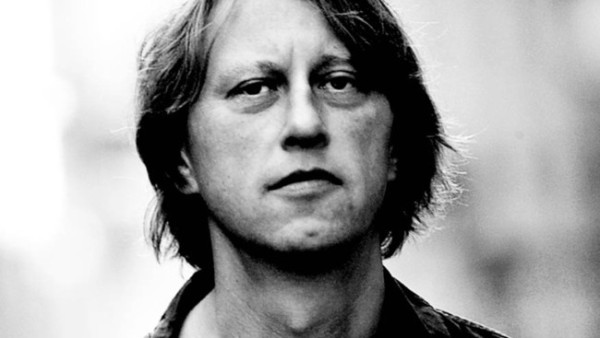
The Czech underground II: The politics of memory between the control of society and ethics - Jáchym Topol
- Where: Montmartre Gallery
- When: March 12, 2014, 10:30 – 12:30
The second in a second season of lectures dedicated to the Czech underground. The Czech Underground series is organised by the Historical Sociology department at Charles University’s Faculty of Humanities and the Václav Havel Library and headed by sociologist Nicolas Maslowski.

Magnesia Litera
- Where: Montmartre Gallery
- When: March 12, 2014, 19:00 – 21:00
Readings by authors from several of the seven categories in the annual Magnesia Litera book awards. Three or four writers from a range of categories will read. Pavel Mandys from the Litera civic association, which runs the awards, will host the evening.
Jan Němec: Dějiny světla (Litera za prózu)
Jiří Padevět: Průvodce protektorátní Prahou (Litera za literaturu faktu)
Eva Papoušková: Kosprd a Telecí (Litera za knihu pro děti a mládež)
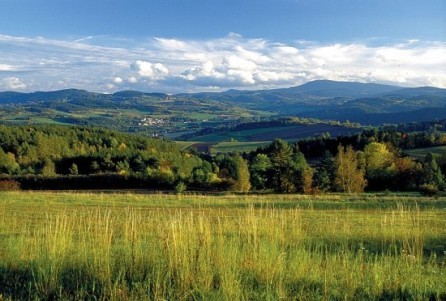
Poetry from deep in the earth
- Where: Montmartre Gallery
- When: March 13, 2014, 19:00 – 21:00
Literary evening featuring poets from the Šumava area. The writers are headed by hymnic poet Roman Szpuzuk from the group XXVI and František Klišík, a descendant of Romanian immigrants who comes from the wilderness of Stögrova huť near Volary. From Prachatice come Libor Staněk and Radek Štěpánek, who produce their works on the Croatian island of Pag. Also featured will be Jakub Marvan and his Projekt A Nomos, while poet Lukáš Bína from Pardubice will, among other things, present his debut Ocelová Středozem (Steel Mediterranean).
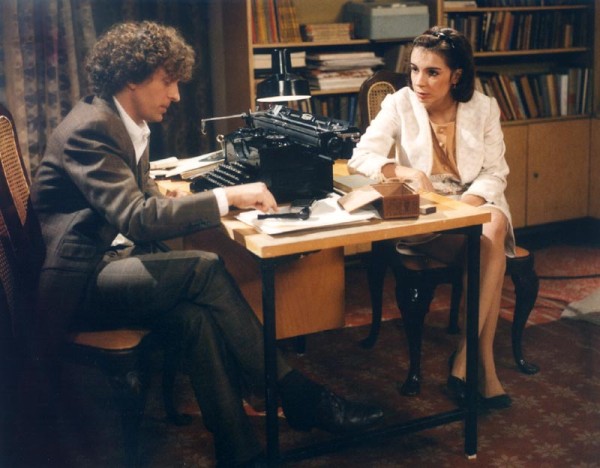
Staged reading - A butterfly on the antenna
- Where: Montmartre Gallery
- When: March 17, 2014, 19:00 – 21:00
The second evening in a series of staged readings of Václav Havel’s plays looks at A Butterfly on the Antenna, a one-act work on the passivity of the Czech intelligentsia. Writer Jeník celebrates his 30th birthday while water unceasingly drips from a tap, constantly gathering speed.
Featuring: Marie Málková, Ondřej Novák, Diana Toniková and others
Director: Šimon Dominik
The evening has been prepared by Barbora Šenoltová
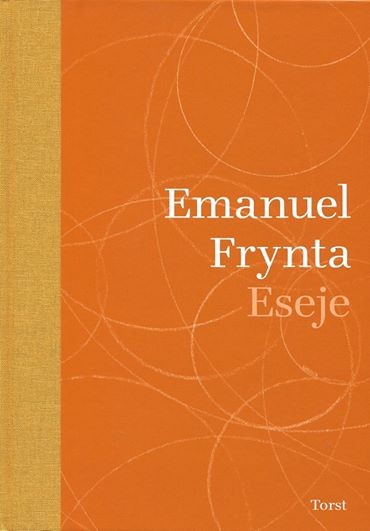
Emanuel Frynta's essays
- Where: Montmartre Gallery
- When: March 18, 2014, 19:00 – 21:00
Frynta’s articles, essays and studies of Czech, Russian and Spanish literature and literary and visual art in the period 1946–1974 will be presented by the collection’s editor, Jiří Honzík of the Torst publishing house, while Ada Fryntová and Daniel Frynta and Frnynta’s best friends Ivan Vyskočil and Jiří Suchý will speak about the writer’s unique personality.
Jan Šulc will present and discuss Frynta’s inner universe.

Magnesia Litera
- Where: Montmartre Gallery
- When: March 19, 2014, 19:00 – 21:00
Readings by authors from several of the seven categories in the annual Magnesia Litera book awards. Three or four writers from a range of categories will read. Pavel Mandys from the Litera civic association, which runs the awards, will host the evening.
Daniel Hradecký: 64 (Litera za poezii)
Eva Prchalová: Cesta svatým Vít-ahem (Litera za knihu pro děti a mládež)
Kateřina Rudčenková: Chůze po dunách (Litera za poezii)
Jaroslav Rudiš: Národní třída (Litera za prózu)
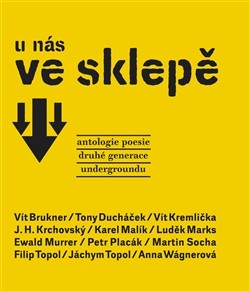
In our cellar
- Where: Montmartre Gallery
- When: March 20, 2014, 19:00 – 21:00
A Revolver Revue evening dedicated to U nás ve sklepě (In Our Cellar), an anthology of poetry of the second generation of the underground recently published in the Edice RR series. Literary critic and editor Marek Vajchr will deliver a paper on the poems in the book, while actors Ivana Uhlířová and Miloslav König will read selected poems from Vít Brukner, Tony Ducháček, Vít Kremlička, J. H. Krchovský, Karel Malík, Luděk Marks, Ewald Murrer, Petr Placák, Martin Socha, Filip Topol, Jáchym Topol a Anna Wágnerová (the staged reading is conceived along the lines of the Masopust theatre). The evening, hosted by Revolver Revue editor-in-chief Terezie Pokorná, will be concluded by literary historian Michael Špirit with the lecture The Nose That Disappeared: Poets of the Second Generation of the Underground in Academic History.
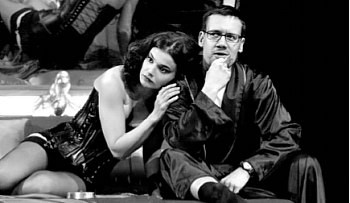
Challenges, paradoxes, plays: Václav Havel - IV. Temptation
- Where: Montmartre Gallery
- When: March 24, 2014, 19:00 – 21:00
A variation on the still topical Faust story from the mid 1980s, in which Václav Havel captures the battle for one’s own identity with nonsensical mechanisms of power and in particular with the devil within us all. The evening will focus on the interesting circumstances of its genesis, the author’s own reflections and recollections, excerpts from a number of professional stagings and Ivan M. Havel in a production for video from the period when the play was banned at Czechoslovak theatres.
Vladimír Just and Jitka Sloupová will participate during the evening. Karel Beseda will read short extracts.
This series dedicated to the plays of Václav Havel is organised by Anna Freimanová.
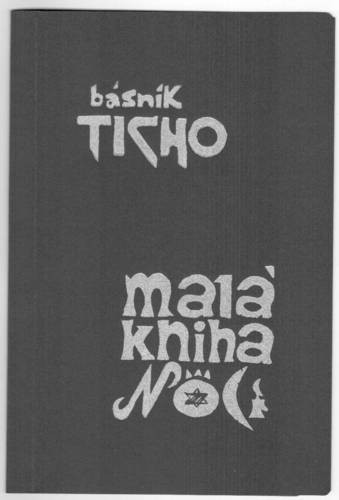
Small book of night
- Where: Montmartre Gallery
- When: March 25, 2014, 19:00 – 21:00
Launch of the second edition of a collection of poetry by Básník Ticho entitled Malá kniha Noci (Small Book of Night) (Skoba, 2014). The anthology, which presents a selection of the writer’s work from the period 1978–2012 is inspired in terms of content by the trinity of silence (concord and discontentment with the universe, internal and external harmony and disharmony, the landscape of silence). As well as the poet’s legendary magical imagination, it presents poems that are purely detective style, literary hip-hop, cyber pop, silent-soft, sci-fi, retro ballads, heretical or analytical, or his typical haiku.
The collection will be official launched by Ota Kars, Aleš Klíma and Vít Kremlička, who will also participate in the programme.
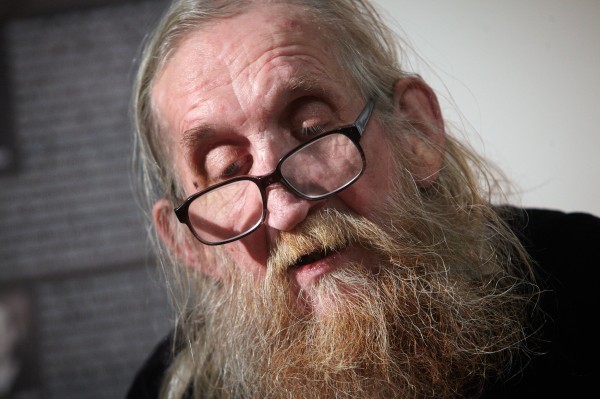
The Czech underground III: The politics of memory between the control of society and ethics - Vratislav Brabenec
- Where: Montmartre Gallery
- When: March 26, 2014, 10:30 – 12:30
The third in a second season of lectures dedicated to the Czech underground. The Czech Underground series is organised by the Historical Sociology department at Charles University’s Faculty of Humanities and the Václav Havel Library and headed by sociologist Nicolas Maslowski.

Magnesia Litera
- Where: Montmartre Gallery
- When: March 26, 2014, 19:00 – 21:00
Readings by authors from several of the seven categories in the annual Magnesia Litera book awards. Three or four writers from a range of categories will read. Pavel Mandys from the Litera civic association, which runs the awards, will host the evening.
Ivan Binar: Jen šmouha po nebi (Litera za prózu)
Adam Borzič: Počasí v Evropě (Litera za poezii)
Tomáš Zahrádka: Dědeček (Litera pro objev roku)
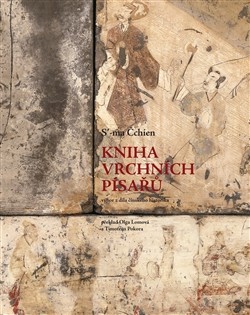
Records of the Grand Historian - an insight into the world of ancient China (and more)
- Where: Montmartre Gallery
- When: March 27, 2014, 19:00 – 21:00
Translator Olga Lomová presents one of the key works of the Chinese tradition, Records of the Grand Historian by Sima Qian, a historical chronicle from the first century AD. The subsequent debate will take in translating from classical Chinese, Chinese traditional culture and the interpretation of tradition in contemporary China.
Havel Channel
Havel Channel je audiovizuální projekt Knihovny Václava Havla, jehož cílem je šířit myšlenkový, literární a politický odkaz Václava Havla, bez ohledu na vzdálenost, zeměpisné hranice či nouzové stavy. Jeho páteř tvoří debaty, vzdělávací projekty a rozhovory. Velký prostor je věnován též konferencím, autorským čtením, záznamům divadelních inscenací a koncertům. Audiovizuální projekt Knihovny Václava Havla Havel Channel se uskutečňuje díky laskavé podpoře Karel Komárek Family Foundation.
Publications / E-shop
The central focus of the Library’s publishing programme is the life and work of Václav Havel, his family and close collaborators and friends. For clarity, the programme is divided into six series: Václav Havel Library Notebooks, Václav Havel Library Editions, Student Line, Talks from Lány, Václav Havel Documents, Works of Pavel Juráček and Václav Havel Library Conferences. Titles that cannot be incorporated into any of the given series but which are nonetheless important for the Library’s publishing activities are issued independently, outside the series framework.
Diary IV. 1974–1989
399,- CZK
Foolish Writing
299,- CZK
Havel to the Castle
149,- CZK
Kilián Nedory
199,- CZK
Case for a Novice Headsman
199,- CZK
I am not sad. Audience & Vernissage
129,- CZK
To the Castle and Back
249,- CZK
I am the Gypsy Baron
299,- CZK
Conferences & prizes
Václav Havel European Dialogues
The Václav Havel European Dialogues is an international project that aims to initiate and stimulate a discussion about issues determining the direction of contemporary Europe while referring to the European spiritual legacy of Václav Havel. This idea takes its main inspiration from Václav Havel’s essay “Power of the Powerless”. More than other similarly focused projects, the Václav Havel European Dialogues aims to offer the “powerless” a platform to express themselves and in so doing to boost their position within Europe.
The Václav Havel European Dialogues is planned as a long-term project and involves cooperation with other organisations in various European cities. Individual meetings, which take the form of a conference, are targeted primarily at secondary and third-level students, as well as specialists and members of the public interested in European issues.
Prague 2022Olomouc Prague 2023PragueMnichov 2020Brussels 2020Prague 2019Brussels 2019Prague 2018Brussels 2018Europe at the Crossroads (e-book)Prague 2017Brussels 2017Prague 2016Brussels 2016Prague 2015Brussels 2015Brussels 2014Berlin 2014Prague 2014 - J. GauckBruges 2014Prague 2014
Václav Havel Human Rights Prize
The Václav Havel Human Rights Prize is awarded each year by the Parliamentary Assembly of the Council of Europe (PACE) in partnership with the Václav Havel Library and the Charta 77 Foundation to reward outstanding civil society action in the defence of human rights in Europe and beyond.
11th Year of the Prize (2023)10th Year of the Prize (2022)9th Year of the Prize (2021)8th Year of the Prize (2020)7th Year of the Prize (2019)6th Year of the Prize (2018)5th Year of the Prize (2017)4th Year of the Prize (2016)3rd Year of the Prize (2015)2nd Year of the Prize (2014)1st Year of the Prize (2013)History of the prize
Havel - Albright Transatlantic Dialogues
Since the first Václav Havel Transatlantic Dialogues at GLOBSEC and FORUM 2000 conferences last year, we have lost another stalwart advocate of the transatlantic bond and of the need to face threats to democracy and international order together on both sides of the Atlantic, the former US Secretary of State Madeleine Albright. In view of the close bond between Václav Havel and Madeleine Albright and, after Havel's death, between the Secretary and the Library, the Václav Havel Library, with the approval of Madeleine Albright's family, renamed and rebranded the program as The Havel-Albright Transatlantic Dialogues (HATD), after the two major figures with roots in Central Europe who have personified the bond. Together, Václav Havel and Madeleine Albright symbolize the transatlantic relationship and the fundamental values underpinning it perhaps better than any other two people in recent history. The upcoming Dialogues “The Indispensable Woman: The Legacy of Madeleine K. Albright”, at the FORUM 2000 conference on September 1, and at the “Havel and our Crisis” conference at Colby College, ME, on September 28, will thus become venues for a well-deserved tribute to the pair we all respected and admired.
Transatlantic Dialogues 2021Transatlantic Dialogues 2022HATD 2022 Prague
Václav Havel
Václav Havel
* 5. 10. 1936 Praha
† 18. 12. 2011 Hrádeček u Trutnova
- spisovatel a dramatik, publicista a filozof
- jeden z trojice prvních mluvčích Charty 77
- vůdčí autorita československé společenské změny v listopadu 1989
- poslední prezident Československa a
- první prezident České republiky
- celoživotní zastánce lidských práv a svobod doma i ve světě.
Educational projects
Archive / Documentation centre / Research projects
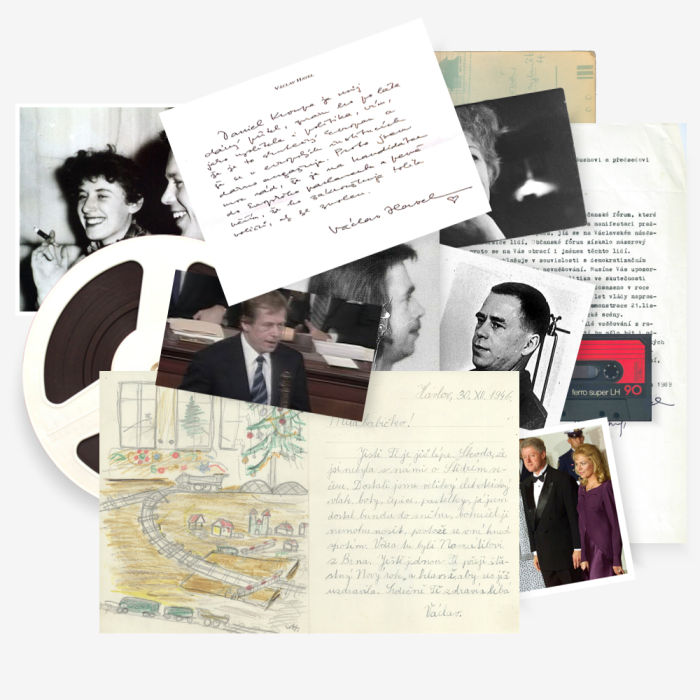
The Václav Havel Library is gradually gathering, digitizing, and making accessible written materials, photographs, sound recordings and other materials linked to the person of Václav Havel.
- 70739 records in total
- 27668 of events in the VH's life
- 2831 of VH's texts
- 2125 of photos
- 403of videos
- 568of audios
- 6604of letters
- 15101of texts about VH
- 8260 of books
- 40574of bibliography records
Access to the database of the VHL’s archives is free and possible after registering as a user. Accessing archival materials that exist in an unreadable form is only possible at the reading room of the Václav Havel Library, Ostrovní 13, 110 00 Prague 1, every Tuesday (except state holidays) from 9:00 to 17:00, or by prior appointment.
We will be glad to answer your queries at archiv@vaclavhavel-library.org.
Sign in (registered users only)
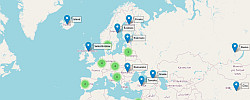
Havel in a nutshell
The virtual exhibition Václav Havel in a Nutshell places the life story of Václav Havel in the broader cultural and historic context in four chronologically distinct chapters with rich visual accompaniment. The exhibition is supplemented by the interactive map Flying the World with Václav Havel, which captures in physical form Havel’s global “footprint”.
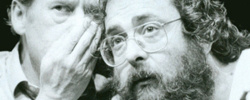
Vladimir Hanzel's revolution
Collage of recollections, images and sound recordings from Vladimír Hanzel, President Václav Havel’s personal secretary, bringing the feverish atmosphere of the Velvet Revolution to life.
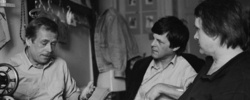
Václav Havel Interviews
A database of all accessible interviews given to print media outlets by the dramatist, writer and political activist Václav Havel between the 1960s and 1989. The resulting collection documents the extraordinary life story of an individual, as well as capturing a specific picture of modern Czechoslovak history at a time when being a free-thinker was more likely to lead to jail than an official public post.
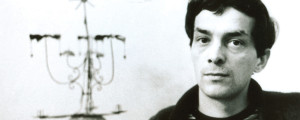
Pavel Juráček Archive
The Pavel Juráček Archive arose in February 2014 when his son Marek Juráček handed over six banana boxes and a typewriter case from his father’s estate to the Václav Havel Library. Thousands of pages of manuscripts, typescripts, photographs, documents and personal and official correspondence are gradually being classified and digitalised. The result of this work should be not only to map the life and work of one of the key figures of the New Wave of Czechoslovak film in the 1960s, but also to make his literary works accessible in the book series The Works of Pavel Juráček.
The aim of the Václav Havel Library is to ensure that Pavel Juráček finds a place in the broader cultural consciousness and to notionally build on the deep friendship he shared with Václav Havel. Soon after Juráček’s death in 1989 Havel said of him: “Pavel was a friend of mine whom I liked very much. He was one of the most sensitive and gentle people I have known – that’s why I cannot write more about him.”
All about Library
The Václav Havel Library works to preserve the legacy of Václav Havel, literary, theatrical and also political, in particular his struggle for freedom, democracy and the defence of human rights. It supports research and education on the life, values and times of Václav Havel as well as the enduring significance of his ideas for both the present and future.
The Václav Havel Library also strives to develop civil society and active civic life, serving as a platform for discussion on issues related to the support and defence of liberty and democracy, both in the Czech Republic and internationally.
The main aims of the Václav Havel Library include
- Organizing archival, archival-research, documentary, museum and library activities focused on the work of Vaclav Havel and documents or objects related to his activities, and carries out professional analysis of their influence on the life and self-reflection of society
- Serving, in a suitable manner, such as through exhibitions, the purpose of education and popularisation functions, thus presenting to the public the historical significance of the fight for human rights and freedoms in the totalitarian period and the formation of civil society during the establishment of democracy
- Organizing scientific research and publication activities in its areas of interest
Podpořte nás
We are well aware that freedom and democracy must be nurtured. Here at Ostrovní 13, but also on the audiovisual platform Havel Channel, we strive to do so through our own educational programmes, talks, discussion meetings, books, exhibitions, concerts, theatre performances. We honour Václav Havel's legacy and wish that the Library be a living organism and open to all. That is why our programme is free of charge for everyone. This would not be possible without regular financial support from our supporters. Become one of them...
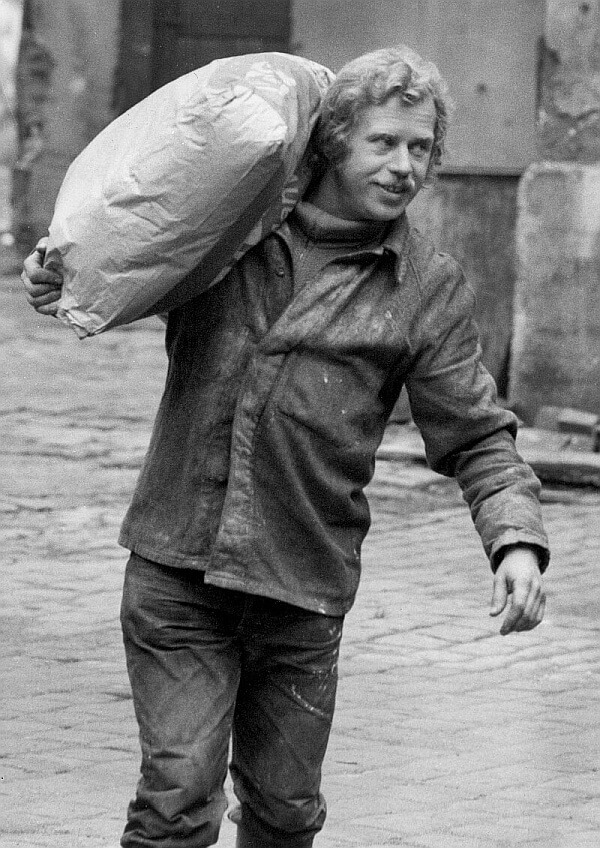
Support us with a financial donation
Does our work make sense to you and do you want to support the activities of the Vaclav Havel Library?
You can easily make a one-time payment by scanning the QR code.
Would you like to contribute regularly? Then we invite you to become a member of the Friends of the Vaclav Havel Library Club. What are the benefits of membership? Find out more.
Help us expand the archive
The Vaclav Havel Library manages an archive of writings, documents, photographs, video recordings and other materials related to the life and work of Vaclav Havel. This archive is predominantly in digital form. If you or someone close to you owns any original texts, correspondence, photographs, speeches or any other work by Vaclav Havel, we would be grateful if you could contact us.
You can donate in other ways too
Supporting a specific charitable or public benefit organization whose activities you appreciate or have been supporting for a long time is also possible through a will. This form of donation is quite common abroad, but in the Czech Republic this tradition is only just taking root.
Share information about us
The Vaclav Havel Library is open to media and promotional cooperation, mutual sharing of links, publishing our banners or information about our events.
For more information, please contact us.
Donations have their rules
At the Vaclav Havel Library, we uphold a transparent, responsible and ethical way of dealing with all those who contribute to fulfilling our purpose and implementing our strategy. Our code of ethics summarizes the basic rules of donations.
Get involved in volunteering
Would you like to get involved as a volunteer? That's great. We welcome anyone who wants to help our work.








